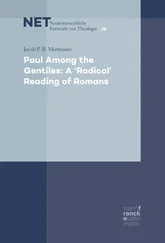Charles Gore - St. Paul's Epistle to the Romans - A Practical Exposition. Vol. I
Здесь есть возможность читать онлайн «Charles Gore - St. Paul's Epistle to the Romans - A Practical Exposition. Vol. I» — ознакомительный отрывок электронной книги совершенно бесплатно, а после прочтения отрывка купить полную версию. В некоторых случаях можно слушать аудио, скачать через торрент в формате fb2 и присутствует краткое содержание. Издательство: Иностранный паблик, Жанр: foreign_religion, foreign_antique, foreign_prose, на английском языке. Описание произведения, (предисловие) а так же отзывы посетителей доступны на портале библиотеки ЛибКат.
- Название:St. Paul's Epistle to the Romans: A Practical Exposition. Vol. I
- Автор:
- Издательство:Иностранный паблик
- Жанр:
- Год:неизвестен
- ISBN:нет данных
- Рейтинг книги:3 / 5. Голосов: 1
-
Избранное:Добавить в избранное
- Отзывы:
-
Ваша оценка:
- 60
- 1
- 2
- 3
- 4
- 5
St. Paul's Epistle to the Romans: A Practical Exposition. Vol. I: краткое содержание, описание и аннотация
Предлагаем к чтению аннотацию, описание, краткое содержание или предисловие (зависит от того, что написал сам автор книги «St. Paul's Epistle to the Romans: A Practical Exposition. Vol. I»). Если вы не нашли необходимую информацию о книге — напишите в комментариях, мы постараемся отыскать её.
St. Paul's Epistle to the Romans: A Practical Exposition. Vol. I — читать онлайн ознакомительный отрывок
Ниже представлен текст книги, разбитый по страницам. Система сохранения места последней прочитанной страницы, позволяет с удобством читать онлайн бесплатно книгу «St. Paul's Epistle to the Romans: A Practical Exposition. Vol. I», без необходимости каждый раз заново искать на чём Вы остановились. Поставьте закладку, и сможете в любой момент перейти на страницу, на которой закончили чтение.
Интервал:
Закладка:
2. Inasmuch as 'the law' was a national thing, so 'works of the law' were a supposed means of justification confined to Israel, and an occasion of contempt for other nations. Faith, on the other hand, the mere capacity to feel our own wants and to take God at His word, is a universal quality and belongs, or may belong, to all men. Thus justification by faith is opposed to justification by works of the law, as the universal or catholic to the merely Jewish or national, and in this aspect the contrast occupies a great place in St. Paul's thought and teaching.
3. But it is not in the things it is occupied about, or in the range of its activity, that faith is most centrally contrasted with works. It is in the attitude of man towards God which it represents. The 'worker' for justification always retains his own independence towards God. He works upon the basis of a definite covenant by which God is bound as well as himself. He has the right to resent additional claims. Faith, on the other hand, means an entire abandonment of independence. It is self-committal, self-surrender. 'I know him whom I have believed, and I am persuaded that he is able to guard that which I have committed unto him against that day 22 22 2 Tim. i. 12.
.' The man of faith throws all the responsibility for life on God, and says simply and continually, 'Speak, Lord, for thy servant heareth.'
It is of the utmost importance to notice that this is the only attitude of man towards God which corresponds with the ultimate facts of human nature, as science and philosophy are bound to represent them. Man is, in fact, an absolutely dependent being, physically and spiritually. His virtue must lie, not in originativeness, but in correspondence. Supposing him a free agent in God's universe, his freedom can only consist in a power to correspond with divine forces and laws intelligently and voluntarily; or on the other hand to disturb the divine order of creation in a measure by wilfulness and sin. Now faith is simply the faculty of loving correspondence with God. 'Justification by faith' is the only conception of justification which is possible in the light of the root facts of human nature. But of course the practical appeal of this conclusion to the heart and will is immensely increased, if men can be shown to have acted as if they were independent and to have found it a failure; if life lived in independence of God, with God as it were withdrawn from the actual scene of life to its far-off horizon, is found to have resulted in havoc, weakness and despair. So, in fact, St. Paul's doctrine of the true means of justification is based on an appeal, not so much to the ultimate constitution of our human nature as to the experienced results of our independence of God, to the facts of sin, whether among Gentiles or Jews.
4. Finally, the principle of justification by faith is contrasted with that of justification by works of the law in the view which it involves of the character of God. The law, as St. Paul interprets it, views God as a lord and taskmaster. Faith presents Him as the Father of our spirits, always waiting upon us with His eternal, unchangeable love; bearing with us; dealing with us even on a false basis which by our sins we have forced upon Him, in order to bring us to a recognition of the true; anyway acting or withholding action, if by any means we can be won to recognize His true character and our true life.
These are the broad contrasts between the alternative methods of justification by faith or by 'works of the law.' The law, and the attitude towards God which the law suggested, are, in St. Paul's view, the main characteristic of the Old Testament. This is a point of view which we should expect in one trained by the Pharisees. We may possibly feel that St. Paul tends to identify with the Old Testament as a whole one particular element in it which specially characterized one particular period. But at least the element was there, and occupied there a highly important place in the whole development; and if St. Paul in his idealizing manner sometimes speaks as if it was the whole of the older covenant, as if he had forgotten all the teaching of prophet and psalmist, yet he is not really forgetful. Law is to him the characteristic of the old covenant. But behind the law God's dealings with Abraham are for ever in his imagination witnessing against the law's limitation, and a similar witness is kept up all along: so that St. Paul can take out of one of the books of Moses his very central statement of the principle of faith 23 23 Rom. x. 5-8.
.
In what has just been said justifying faith has been treated as if it were simply, as it is really, faith in God; whereas in St. Paul's language the object of justifying faith is constantly 'Jesus 24 24 Cf. iii. 22, 26, &c.
.' The explanation of this is that in Jesus Christ God has manifested His character as Father, and has come near to men, 'reconciling the world unto Himself,' by the atonement wrought through His incarnate Son, and giving conspicuous evidence of His saving power by raising Him from the dead 25 25 2 Cor. v. 19; Rom. iv. 25.
. Thus, if Jesus is the proximate object of justifying faith, it is Jesus as manifesting the Father, Jesus as God incarnate; and St. Peter is strictly interpreting St. Paul when he represents the object of Christ's sacrifice and resurrection in the phrase, 'that your faith and hope might be in God 26 26 1 Pet. i. 21. It is of course the case that the name God in the New Testament is generally reserved for the Father, though the proper divinity of Son and Spirit is constantly implied.
.' The faith of the Christian is the old faith of Abraham and Habakkuk, the faith in the Lord Jehovah only now made manifest in a new and completer manner, in a more intimate relation to human life, and with a more winning appeal to the human heart.
Now that we have gained a general idea of what St. Paul meant by justification by faith, as opposed to justification by works of law, we are in a position to deal with a number of questions which have been famous in ecclesiastical history. Does justification mean being made righteous, or being reckoned for righteous? if it means the latter, how can God reckon us as being what in fact we are not? Again, what is the relation of this justification to sanctification? are these two stages, of which the first is over before the second can begin? Again, what is the relation of justification to Church membership? is justification a purely individual process or fact, of which membership in the Church or, what comes to the same thing, reception of the sacraments, is a merely secondary and strictly unessential consequence?
The answers to these questions are all connected with one another. Justification, to begin with, is a judicial or, as it is called, 'forensic' word. It expresses the verdict of acquittal. The use of the word in the Bible made this quite indisputable 27 27 See below, p. 124 .
. Thus God justifies whenever He refuses to condemn – when, whatever may have been our sins, He ignores them, and therefore positively admits us into the accepted people. And He declares His willingness to do this simply because a man believes in Jesus Christ. Let a man believe, or take God in Jesus Christ at His gracious word, and the value of this act of trust or allegiance is such that God reckons it for righteousness, and admits a man into the accepted people, as if he were already fit for such fellowship in his actual habits or character. There is 'imputation' here, but it is the right sort of imputation. It is dealing with us not as we are, nor exactly as we are not, but as we are becoming in virtue of a new attachment under which our life has passed: and this, as the engrossing modern conception of development makes it easy for us to perceive, is the only true and profound way of regarding anything. Not the standard already reached, but the movement, direction, or vitality is the important matter. Faith, then, is 'reckoned for righteousness' because it puts us upon the right basis and in the right relation to God; and therefore is a root out of which, provided it continues to subsist, all righteousness can healthily grow; whereas the most brilliant efforts or 'works' on a wrong basis may have neither sound root nor principle of progress in them. To believe in Jesus is to have the root of the matter in oneself. Therefore, when a man first believes, God can ignore all his previous life, and deal with him simply on the new basis, in hope. Of course this preliminary acquittal or acceptance is provisional. As the servant 28 28 Matt. xviii. 23-35.
who had been forgiven his debts found them rolled back upon him when he behaved in a manner utterly inconsistent with the position of a forgiven man, so our preliminary justification may be promptly cancelled by our future conduct if we behave as one who has 'forgotten the cleansing from his old sins 29 29 2 Pet. i. 9.
.' The prodigal son, after he has been welcomed home, may go back again to the 'far country.' But it remains the fact: – of such infinite value and fruitfulness is faith in God, as He has shown Himself in Jesus, that when a man first believes – aye, whenever, over and over again, he returns to believe – he is in God's sight on a new basis, however dark be the background of his previous sins; and he can be dealt with simply on the new basis, according to the movement of the Father's heart of love which his faith has set free.
Интервал:
Закладка:
Похожие книги на «St. Paul's Epistle to the Romans: A Practical Exposition. Vol. I»
Представляем Вашему вниманию похожие книги на «St. Paul's Epistle to the Romans: A Practical Exposition. Vol. I» списком для выбора. Мы отобрали схожую по названию и смыслу литературу в надежде предоставить читателям больше вариантов отыскать новые, интересные, ещё непрочитанные произведения.
Обсуждение, отзывы о книге «St. Paul's Epistle to the Romans: A Practical Exposition. Vol. I» и просто собственные мнения читателей. Оставьте ваши комментарии, напишите, что Вы думаете о произведении, его смысле или главных героях. Укажите что конкретно понравилось, а что нет, и почему Вы так считаете.












